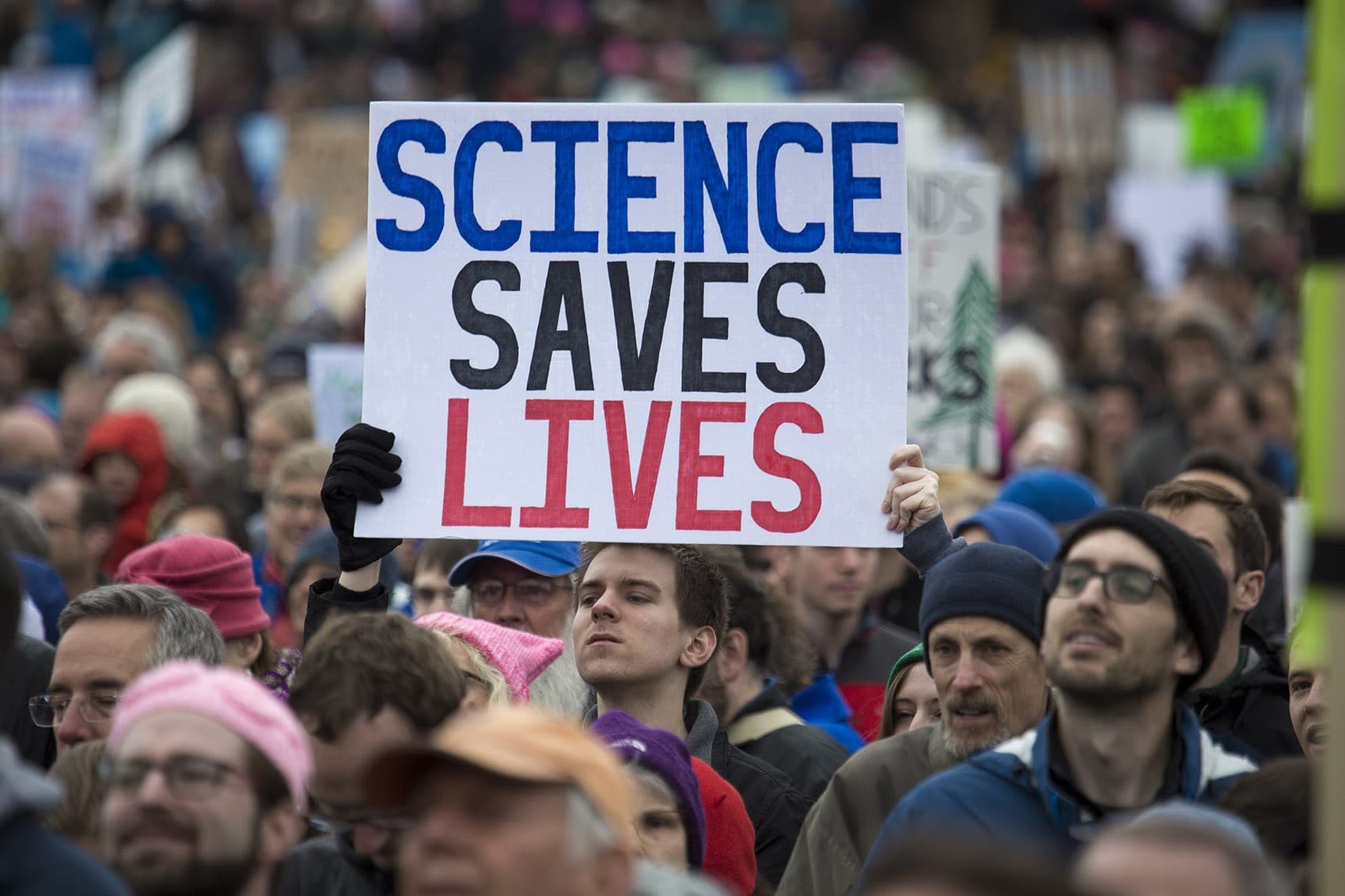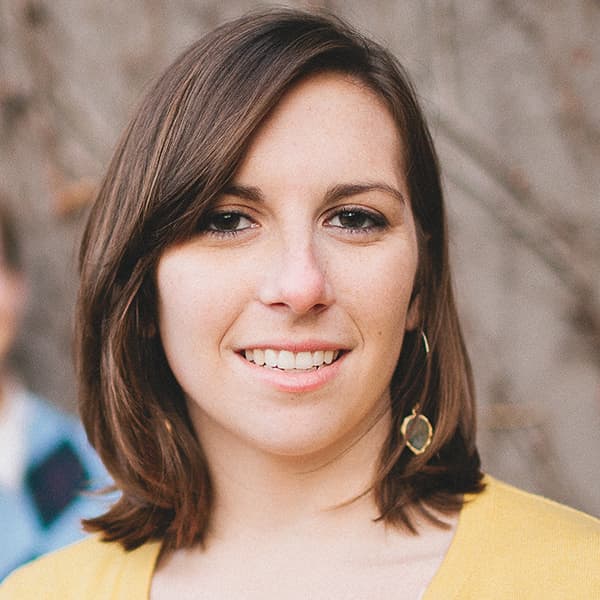Advertisement
A Message From The 'March For Science': Scientists Need To Engage The Public

Boston area scientists, researchers and teachers say the March For Science demonstration that drew thousands of people to Boston Common Saturday is just a small step.
The resounding theme from the march: The way to get out of the massive divide between the public who distrusts or disavows your work is to engage with them, similar to how scientists discuss research with their peers.
"We should expect and invite the same kind of interrogation," Harvard's Cassandra Extavour said on the Common, "and we should be prepared to explain very clearly the limits and the exciting opportunities that our scientific research is offering and not expect non-scientists to take our word for it just because we say that we are scientists."
Extavour teaches evolutionary biology at Harvard. She touched on the chasm that has seemed to open up between the ivory-towered laboratories and ordinary citizens who don't don lab coats for a living.
"We need to help them understand that every time they take the temperature of their child who is sick, or they calculate if they can hit the snooze button five more times and still make it to work on time if the track is coming down 93 — they are doing science also," Extavour said.
"And we need to do this engagement and real communication work every day, all the time — not only when we think that our funding is threatened and not only when we think that somebody might not be able to come and work with us in our lab because of immigration restrictions. This work needs to happen all of the time and every day."
That mission to include the general public and the research findings resonates deeply with Extavour.
"I'm not only a scientist," Extavour said. "I'm a woman; I'm a black woman; I'm a queer woman. And so these other aspects of who I am, as well as my scientific profession, influence my life. And I can't separate these things from my profession because they sometimes impact whether or not I can perform this profession at all."
So the response for these marchers is about more inclusion across the aisle, across income gaps, across ethnic lines. Several scientists have criticized the national March For Science organization for not including diverse perspectives when planning the event. But Boston organizers seemed to go out of their way to be inclusive — like with Graciela Mohamedi. She teaches physics at Boston University; her mother is Latina; her father is Muslim.
Advertisement
"If we want our children to truly believe that when they grow up they can be anything that they want to be" Mohammadi told the crowd, "then the inherent racial and sexist prejudices within the sciences must be shattered."
For Mohammadi, the way to do that is more engagement.
"As people of privilege, it is our responsibility to use our voices for those whose voices will not be heard," Mohammadi said. "When this rally is over, go and call your elected officials and tell them that science and education funding matters."
But many scientists feel uncomfortable in that activist role, seeing their jobs as dispassionate researchers asking questions and following where the evidence leads.
Some, like Arthur Lambert of MIT's Whitehead Institute, worry that such widespread political engagement might actually make things worse.
"I just wonder if the march sort of plays into the whole partisan environment that's out there right now and actually kind of does the opposite," Lambert said. "Rather than convincing people, it actually turns them away."
Harvard professor Naomi Oreskes disagrees, because science is a team effort with peer input and review.
"It's not about one individual," Oreskes said. "And that means that you can be perfectly happy to be out here and say whatever you want about politics — as a citizen, as a human and as a scientist — and it doesn't compromise the objectivity of the larger process. What does compromise the objectivity of the larger process is suppression."
Geneticist George Church took it a step further Saturday.
"Why is it in some countries, like China, 89 to 90 percent of elected officials have degrees in science and technology, but in the United States this number is 1 percent. All of you nerds — start running for office!"
Only time will tell whether those nerds will launch political campaigns, push the national discourse in a new direction or if the movement will get lost.
